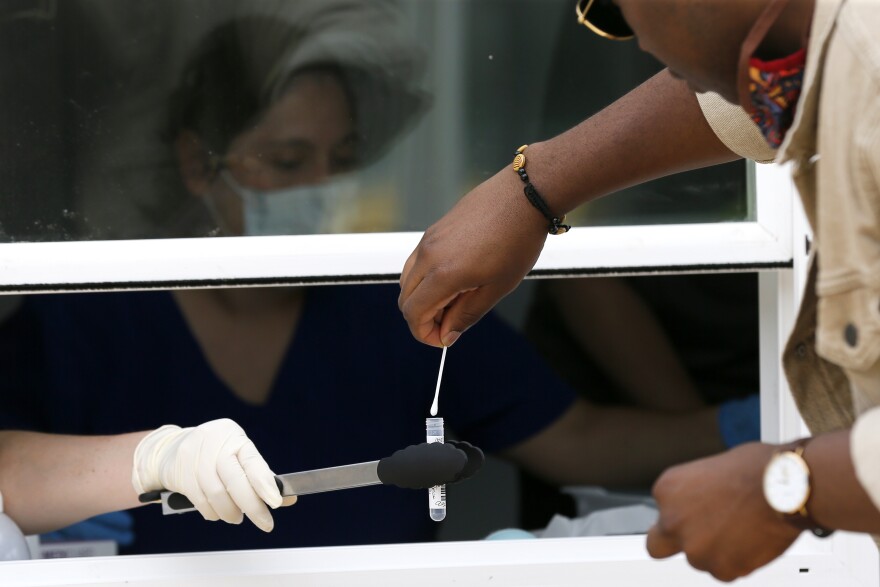While you may be in a rush to get tested for COVID-19, it's important to make sure you’re getting tested at a place that is both safe and reliable. North Texans are reporting spending money on tests and not getting their results back.
To avoid getting a test that’s really a scam, here are three tips on how to spot suspicious testing sites and websites.
- Be wary of giving out too much personal information.
According to Monica Horton with the Better Business Bureau of North Central Texas, the agency has been getting reports of people paying for COVID tests and not receiving their test results.
“We did have a report from a Dallas consumer who showed up at a pop-up testing site, where you give all your information — your social security number, your credit card information and other health information, and then you wind up not receiving your test results. So your information could be in the wrong hands,” Horton said.
Too many questions about that sort of personal information is a warning sign.
- Find testing sites via accredited websites.
If you’re wary of getting a test from a testing site near you, check to see if government health websites have listed the spot as somewhere you should get a test.
“We are encouraging consumers to visit the U.S. Health and Human Services website and find a valid testing site through that website or even the state health department may be able to provide a list of testing sites,” Horton said.
In case you come across a testing site that doesn’t get back to you with your results, Horton suggests reporting them to the bureau so other people don’t go there.
- Avoid buying testing kits from unreliable websites.
If you prefer to go with an at-home test, The Federal Trade Commission recommends buying COVID tests that are authorized by the U.S. Food and Drug Association only.
The FTC also recommends checking reviews of the test online before buying, and paying by credit card so that you could dispute the charges if things go awry.
Got a tip? Email Haya Panjwani at hpanjwani@kera.org. Follow Haya on Twitter @hayapanjw
KERA News is made possible through the generosity of our members. If you find this reporting valuable, consider making a tax-deductible gift today. Thank you.

